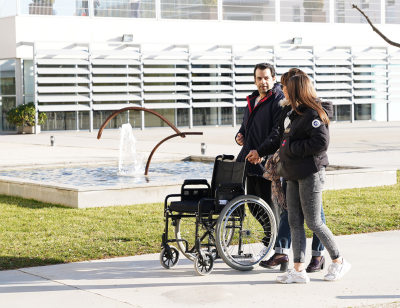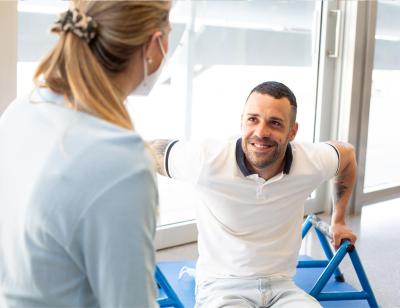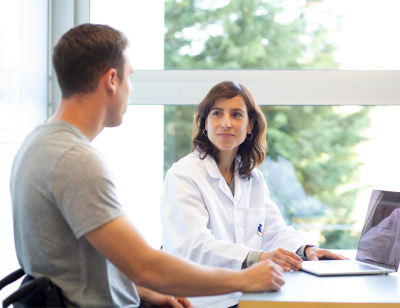At first, it can be difficult to imagine a different experience of sexuality compared to before, and doubts arise about one's own competencies.
Neurological disabilities caused by spinal cord injury or acquired brain damage can have a direct effect on sexual response, depending on the type, degree and location of the injury. Although these disturbances are essentially physical, they can also have significant emotional repercussions on a person’s life.
Uncertainty, acceptance of one’s own body or loss of self-esteem can affect sexual interest or desire during this acute or subacute phase. But as the person moves forward in their process of adaptation, they regain emotional stability and feel more confident about life, gradually feeling more motivated to restart their sex life.
In addition, we now know more about the neurophysiological mechanisms that regulate sexual response, and new drugs, electronic devices and microsurgical techniques are available, as well as studies on cognitive and emotional factors. All of these offer promising solutions for many of the problems that affect people with a neurological disability.
According to the World Health Organization (WHO) sexuality is “a central aspect of being human throughout life and encompasses sex, gender identities and roles, sexual orientation, eroticism, pleasure, intimacy and reproduction. It is experienced and expressed in thoughts, fantasies, desires, beliefs, attitudes, values, behaviours, practices, roles and relationships”.
Each person’s different characteristics will define their sexuality after a neurological injury
We should never assume that people with disabilities have a homogeneous sexual response, as this is conditioned by the characteristics of the sequelae, the drug treatment received, the psychological reaction of the person and their partner, as well as previous experience, including beliefs, values and sexual history.
There are therefore as many ways of experiencing sexuality as there are attitudes to dealing with a disability, and this should not stop people from expressing their sexuality freely and responsibly.
The Institut Guttmann’s Sexuality and Assisted Reproduction Unit (USRA) was created in 1986 to offer information on possible consequences of disability, detect possible psychological disorders and dysfunctional patterns, advise and train the interested party and their partner, and offer sexual and relational therapy for individuals and/or couples (self-awareness workshops, body awareness, relaxation and other sexual techniques).
At the Institut Guttmann, we recognise that dealing with sexuality and fertility in people with neurological diseases is a very important part of a comprehensive neurorehabilitation approach, understanding sexuality as a positive and enriching element of the person’s life.
Fertility and reproduction
Progress in medical and surgical treatment means that neurological disability does not mean sterility. Women’s reproductive capacity is not affected, except for the initial phase after acquiring a spinal cord injury, where they may experience temporary amenorrhea. And in men, semen collection and handling techniques allow solutions to be offered to practically all couples.
In addition, assisted reproduction techniques (artificial insemination, in vitro fertilisation, intracytoplasmic sperm microinjection) have made parenthood possible for people whose reproductive possibilities are affected to some extent.
References:
Cambredó, M.V. (2018). “La Salud Sexual y Reproductiva”. Revista Sobre Ruedas, 98, 35-36.
Rodríguez, Dra. D.; Vidal Dr. J. (2018). “Sexualidad y fertilidad en la mujer con una enfermedad neurológica”. Revista Sobre Ruedas, 98, 13-17.
Vidal, Dr. J.; Curcoll Gallemí, M. LL. (2006). La Unidad de Sexualidad y Reproducción asistida del Institut Guttmann. Revista Sobre Ruedas, 68, 2-5.
Vidal, Dr. J. (1998). “Neurorrehabilitación y Fertilidad”. Revista Sobre Ruedas, 41, 2-3.
Brasseco, Dr. M. (1998). “Avances en la reproducción asistida”. Revista Sobre Ruedas, 41, 4-6



